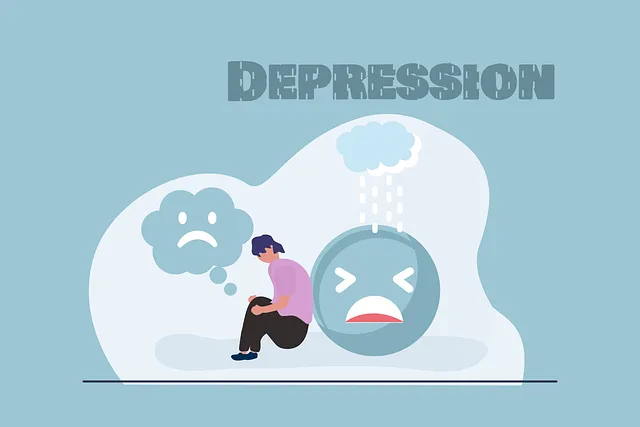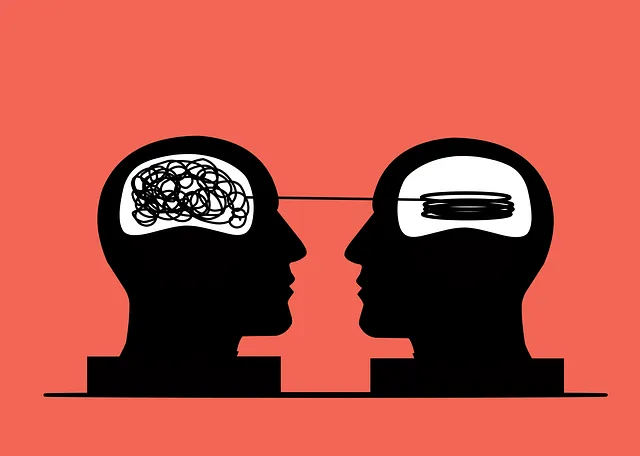Northglenn Kaiser Permanente's psychiatry services prioritize Emotional Intelligence (EI) development through expert guidance and innovative programs, as highlighted in positive reviews. Their holistic approach combines therapy, stress management tools, crisis intervention, and mental wellness coaching to empower patients with emotional regulation skills. This strategy not only improves mental health outcomes but also strengthens relationships by fostering empathy and understanding, as seen in successful depression prevention and patient transformation stories.
Emotional intelligence (EQ) is a powerful tool for mental well-being, driving personal growth and fostering strong relationships. This article delves into the significance of EQ, highlighting its key role in navigating life’s challenges. We explore the unique approach of Northglenn Kaiser Permanente, a leading healthcare provider known for its innovative psychiatry services, where transformative care empowers patients to build resilience and enhance their emotional intelligence. Discover practical strategies and inspiring success stories from Kaiser Permanente patients, showcasing the profound impact of EQ development.
- Understanding Emotional Intelligence: A Key to Mental Well-being
- The Role of Psychiatry in Nurturing EQ (Emotional Quotient)
- Northglenn Kaiser Permanente: A Hub for Transformative Care
- Practical Strategies for Enhancing Emotional Intelligence
- Real-Life Impact: Success Stories from Kaiser Permanente Patients
Understanding Emotional Intelligence: A Key to Mental Well-being

Emotional intelligence (EI) is a crucial aspect of mental wellness, as recognized by Northglenn Kaiser Permanente psychiatry reviews. It involves understanding and managing one’s own emotions, as well as recognizing and empathizing with others’ feelings. This ability to perceive and interpret emotional cues fosters effective communication and strengthens interpersonal relationships. By cultivating EI, individuals can enhance their overall mental wellness, reducing stress and anxiety while promoting resilience in the face of challenges.
Mental Wellness Journaling Exercise Guidance and Crisis Intervention Guidance are valuable tools for building emotional intelligence. Regular journaling helps individuals process emotions, track patterns, and gain insights into their feelings, thoughts, and behaviors. Similarly, conflict resolution techniques, as provided by Northglenn Kaiser Permanente psychiatry services, teach individuals how to navigate difficult situations with empathy and composure, ultimately leading to better mental health outcomes.
The Role of Psychiatry in Nurturing EQ (Emotional Quotient)

In the context of emotional intelligence building, Northglenn Kaiser Permanente psychiatry services play a pivotal role in fostering EQ development. Psychiatrists at Kaiser Permanente Northglenn are trained to provide expert guidance on coping skills development, which is essential for managing emotions and navigating life’s challenges. Through therapy sessions, these professionals help individuals enhance their self-esteem improvement, enabling them to better understand and regulate their emotional responses.
In addition to this, the psychiatry team at Kaiser Permanente Northglenn offers valuable insights into stress management techniques. By addressing mental health concerns, they empower patients with tools to cope with stress effectively. This holistic approach, combining coping skills development and stress management strategies, contributes significantly to building a stronger Emotional Quotient, as reviewed by satisfied patients across various platforms.
Northglenn Kaiser Permanente: A Hub for Transformative Care

Northglenn Kaiser Permanente stands out as a hub for transformative care, especially in the realm of emotional intelligence building. With dedicated psychiatry services and a range of mental health support programs, it offers a holistic approach to enhancing mental wellness. The facility’s innovative practices extend beyond traditional therapy sessions, focusing on empowering individuals with self-care routine development tools, which are crucial for managing stress and cultivating better emotional resilience.
By integrating these strategies into their care plans, Northglenn Kaiser Permanente ensures patients receive comprehensive guidance, not just in psychiatry reviews but also during crises. This proactive approach to mental health management reflects a commitment to fostering a supportive environment where individuals can navigate emotional challenges effectively. Crisis intervention services play a vital role here, ensuring that timely support is available when needed most.
Practical Strategies for Enhancing Emotional Intelligence

Building emotional intelligence (EI) is a powerful tool for enhancing personal and professional relationships, especially in places like Northglenn Kaiser Permanente psychiatry settings. One practical strategy is integrating mental wellness coaching programs that teach individuals to recognize and manage their emotions effectively. These programs can be tailored to fit various environments, promoting skills essential for navigating the complexities of daily life. For instance, group sessions focused on Depression Prevention through EI training have shown promising outcomes in improving patient engagement and coping mechanisms.
Additionally, fostering a culture of Mental Health Policy Analysis and Advocacy within healthcare institutions empowers individuals to actively participate in their care and advocate for evidence-based practices. This can be achieved through peer support groups or educational workshops that encourage open discussions about mental wellness. By adopting these strategies, Northglenn Kaiser Permanente can contribute to improving patient outcomes and creating a more supportive environment, reflecting a holistic approach to mental health care.
Real-Life Impact: Success Stories from Kaiser Permanente Patients

At Northglenn Kaiser Permanente, patients have seen remarkable improvements in their mental health and overall well-being thanks to the dedicated psychiatric care and innovative approaches. Many success stories highlight the power of emotional intelligence (EI) building within the healthcare setting. For instance, a patient struggling with anxiety found solace through mindfulness practices and cognitive-behavioral therapy, which improved their ability to manage stress and fostered better emotional regulation. This transformation not only enhanced their quality of life but also led to more successful navigation of daily challenges.
The integration of Mind Over Matter principles, Cultural Sensitivity in Mental Healthcare Practice, and Empathy Building Strategies has been instrumental in these positive outcomes. Patients report feeling heard, understood, and supported, leading to increased trust in the healthcare system. These success stories serve as a testament to how EI development can revolutionize mental healthcare, ensuring that patients receive personalized care that addresses their unique emotional needs.
Emotional intelligence, a key component of mental well-being, can be nurtured and enhanced through various strategies. As demonstrated by Northglenn Kaiser Permanente’s innovative approach to care, combining psychiatric expertise with holistic techniques yields remarkable results. The success stories shared by their patients highlight the transformative power of emotional intelligence building. For those seeking to improve their EQ, adopting practical strategies and considering expert guidance from Northglenn Kaiser Permanente psychiatry reviews can open doors to better mental health and enhanced relationships.






